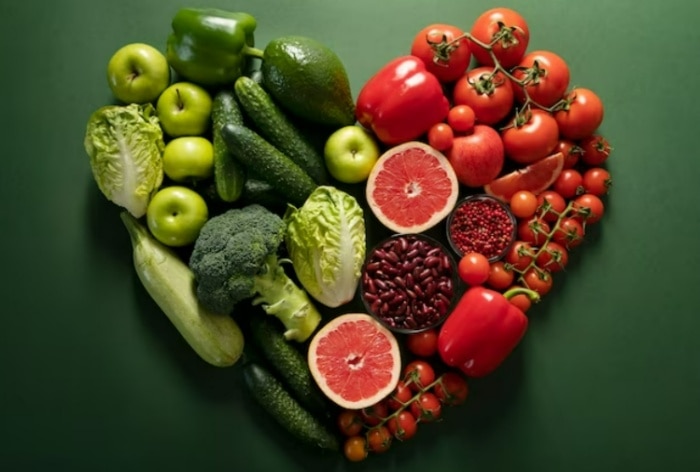You may improve your heart health and reduce your risk of heart disease by eating certain foods, such as leafy greens, whole grains, and dark chocolates.

Heart Health: The key to being healthy and for overall well-being is maintaining a healthy heart. It is thought that eating well is essential to accomplishing this goal. Health professionals advise making deliberate dietary decisions. They advise focusing on fruits, vegetables, whole grains, and other foods while consuming saturated fats and added sweets in moderation while planning your diet. Mickey Mehta, Global Leading Holistic Health Guru/ Corporate Life Coach shared a list of heart-friendly food groups with IANS.
Numerous facets of heart health, such as blood pressure, inflammation, cholesterol levels, and triglycerides, are influenced by what you consume. A balanced, nutritious diet that includes heart-friendly foods can lower your chance of developing heart disease and keep your heart healthy.
9 FOODS TO KEEP YOUR HEART HEALTH IN CHECK
- Whole Grains: Grains like millet, buckwheat, steel cut or rolled oats, quinoa, and brown rice are high in soluble fibre. This fibre type helps to lower cholesterol levels. Furthermore, whole grains have a lower glycemic index, which promotes stable blood sugar levels and reduces the risk of type 2 diabetes, a major precursor to heart disease.
- Lentils: Legumes, chickpeas, beans, and peas stand out as excellent providers of plant-based protein, dietary fibre, and important minerals. Not only are they low in saturated fat, but they also actively help to lower cholesterol levels.
- Nuts And Seeds: Almonds, walnuts, peanuts, flaxseeds, hemp, and chia seeds are high in heart-healthy fats, fibre, and plant-based proteins. These nutritional powerhouses help to control LDL (bad) cholesterol levels while maintaining HDL (good) cholesterol levels.
- Leafy Greens: Spinach, moringa leaves, dill, and kale, are rich in vitamins, minerals and fibre. These greens provide antioxidants such as vitamin K, which is important for blood clot management, and nitrates, which help to lower blood pressure by relaxing blood vessels. Similarly, cruciferous vegetables like cauliflower, cabbage, and broccoli, contain fibre which helps to lower the LDL (bad) cholesterol.
- Fruits: Blueberries, strawberries, raspberries and pomegranate, grapefruit, peaches, and plums emerge as powerful heart-health partners due to their high antioxidant content. These antioxidants work tirelessly to counteract oxidative stress and inflammation, both of which play important roles in the development of heart disease. These fruits play an important function in cholesterol management and digestive wellness.
- Omega 3 Fatty Acids: The inclusion of remarkable compounds namely Omega 3 fatty acids in your daily diet helps to lower triglyceride levels and reduce inflammation. It is recommended that you consume some amount of Omega 3 sources like walnuts, flaxseeds, chia seeds, hemp seeds, beans, and edamame daily to receive these benefits.
- Virgin Olive Oil: Extra virgin olive oil, and green and black olives, a staple of the Mediterranean diet, are high in monounsaturated fats and antioxidants. These aid in lowering LDL cholesterol and reducing inflammation.
- Green Tea: It is high in antioxidants like catechins and may have heart health advantages. Its polyphenols fight oxidative stress and reduce inflammation. Daily consumption may help decrease LDL cholesterol.
- Dark Chocolate: At least 70 per cent cocoa content of dark chocolate has heart-health benefits. Its flavonoids help reduce inflammation.
Good news! India.com is now on WhatsApp Channels. Subscribe today by clicking the link and stay updated with the latest news on entertainment and lifestyle. Click here!
